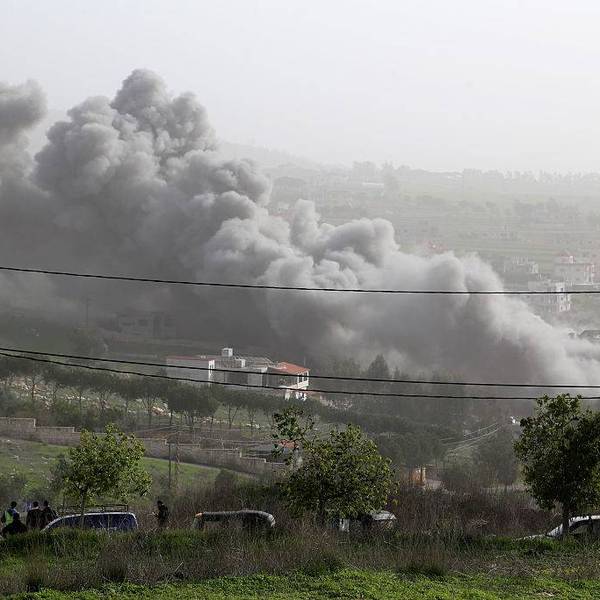A century ago, Gibran Khalil Gibran wrote a love poem to Lebanon, "You have your Lebanon, I have my Lebanon." He spoke of his affection for the people, their poetry, art, music, and love of life; their generous and welcoming spirit; their gifts to the world--especially their gifted people; and the sheer beauty of the country from its snow-capped mountains to its pristine seascapes. Gibran contrasted this with the country's petty bickering politicians who lead because of an accident of birth. That poem has stayed with me since I first read it.
Fifty years ago, my wife, our toddler son, and I went to Lebanon for my first visit to the country of my father's birth. I found the country just as his stories had described. Beirut was a vibrant, splendid metropol, the mountains were stunning, and the people were as hospitable as I had been told they would be.
We had an apartment near the American University of Beirut--a few blocks off Hamra Street. It was an exciting adventure to awaken each morning and just walk the city streets, see the shops open, listen to the chatter and noise of city life, and feel the remarkable energy of the place.
We were able to spend time with my family in their little village safely tucked amidst towering mountains. While in Lebanon we also had the opportunity to meet with Lebanese from all walks of life, visit with Bedouin in their campsite and spend lengthy periods in Palestinian refugee camps--where I was engaged in research for my doctoral dissertation.
Even after we returned to the US, I could feel the pulse of Lebanon beating in my heart and see its sights in my mind's eye. It wasn't hard to have fallen in love with the place and its people.
And yet, my wife and I often recalled an unsettling undercurrent we had experienced in our conversations with those whom we met. We had become concerned listening to the subtle ways some Christians had spoken dismissively about Muslims, or Muslims about Christians, or the distrust or resentment some Lebanese and Palestinians exhibited toward one another. It reminded us of simmering racial tensions in the US. And when I heard Lebanese from one village disparage their fellow Lebanese from a neighboring village, I thought of the legendary Hatfield-McCoy feud that defined conflict in US mountain country.
I wrote a paper a few years later in which I tried to unravel what had been bothering me. Lebanon was a country that was modern on the surface, but its forward path was hamstrung by a political system that fueled traditional feuds born of sectarian, tribal, and regional divisions. And so I wasn't surprised when Lebanon erupted in civil war a few years later and these tensions exploded into full view--with devastating results for the people and the country.
I went back to Lebanon a few times during its long war with itself. Each time, as the plane crossed the Mediterranean and approached Beirut, my heart would skip a beat. I saw the glorious city of white, with its orange tiled roofs, against the blue sea, with snow-capped mountains as a backdrop. And I would think, "It's alright," only to have this notion shattered once on the ground.
What couldn't be seen from the air, became all too clear traveling through the city: bullet-hole pock-marked buildings, armed men (and boys) everywhere, and checkpoints separating all parts of the city. Once glorious and prosperous Hamra had lost its luster. Its walls were papered with pictures of dead young men and bearded, dour-faced religious leaders. The eastern side of the city fared somewhat better but was choking under the weight of congestion. Here too, signs of war were ever-present. Up in the mountains, village life continued. It was like a refuge from the conflict raging below.
In the mid-1980s, I helped found "Save Lebanon," a project to bring to the US for medical treatment children who had been wounded in the civil war or from Israel's massive destruction of Beirut and southern Lebanon. In 1983, we hosted a heroic doctor, Amal Shamaa, to speak about medical needs and help us raise funds for the project. After appearing in a few cities and listening to the questions and comments of the young Lebanese Americans she met, she said to me, "Yours is the last generation that will know Lebanon as a whole country. Future generations will not be able to speak about the north, south, east, and west--because they won't know it. Hold on to this vision of the country that was."
Lebanon got a second lease on life with the Taif Accords that ended the civil war in 1990. And under the leadership of the visionary Prime Minister Rafiq Hariri, Beirut was rebuilt, block by block. It once again became, in his words, "the beating heart that brought life back to the country."
But Lebanon remained deeply divided with sectarian elites draining the country and foreign powers--especially, Syria, Israel, and Iran--competing for advantage or occupying it through surrogates.
Hariri and many of his cabinet and supporters were assassinated in 2005, and since then the country has been in a tailspin, deteriorating to the point where it is today.
I have often thought of Amal's words as I watch Lebanon unraveling before our eyes. And I recall Gibran's love poem to Lebanon as I see horrors that even he could not have imagined: widespread poverty; corrupt, feudal, sectarian elites dancing on the grave of the country in a vain effort to sustain their privileged roles; and an armed militia functioning as a state within a state--willing to use force to maintain its position.
In the future, I want to write about the political situation in Lebanon. For now, I just want to remember what there is to love about the Lebanon that was (and I hope will be again) and damn those who are hell-bent on burying it.




